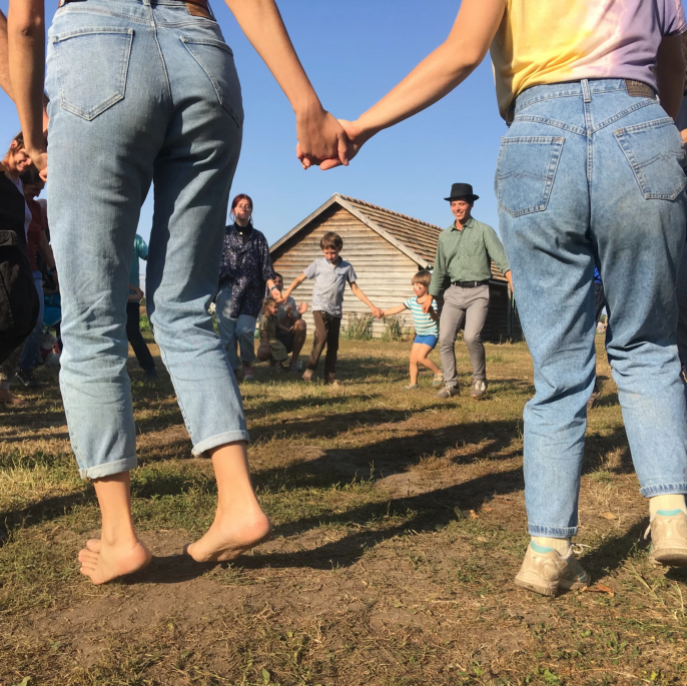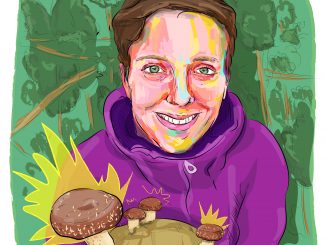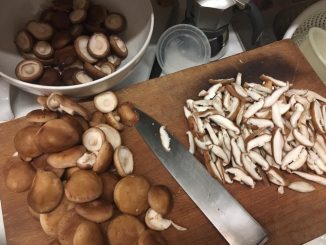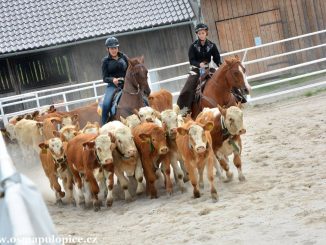
We’re back on Zsámboki Biokert organic market garden in Hungary, where Matthew and Kata Hayes and the team are taking time to plan for the year ahead. January was a time to reflect on the year gone by, and the conscious effort that the farm is making to invest in the next generation, and to encourage young people to think about our food systems. In these uncertain times for micro-scale farmers, and for farming in general, Covid has driven home the need to build and maintain community and common values, writes Matthew Hayes.
January is definitely the best month of the year to reflect over the last year and the year to come on the farm. What did we acheive last season? What did we hope to achieve, and what do we have planned for 2022?
Overall, 2021 was a productive and successful year for us, though the very end of the year looked a bit different to the rest of the year.
Like each year, the production of vegetables dominated. Starting the year with a detailed plan, and then making sure we keep up with our own schedule, pretty much carries us right through the year.
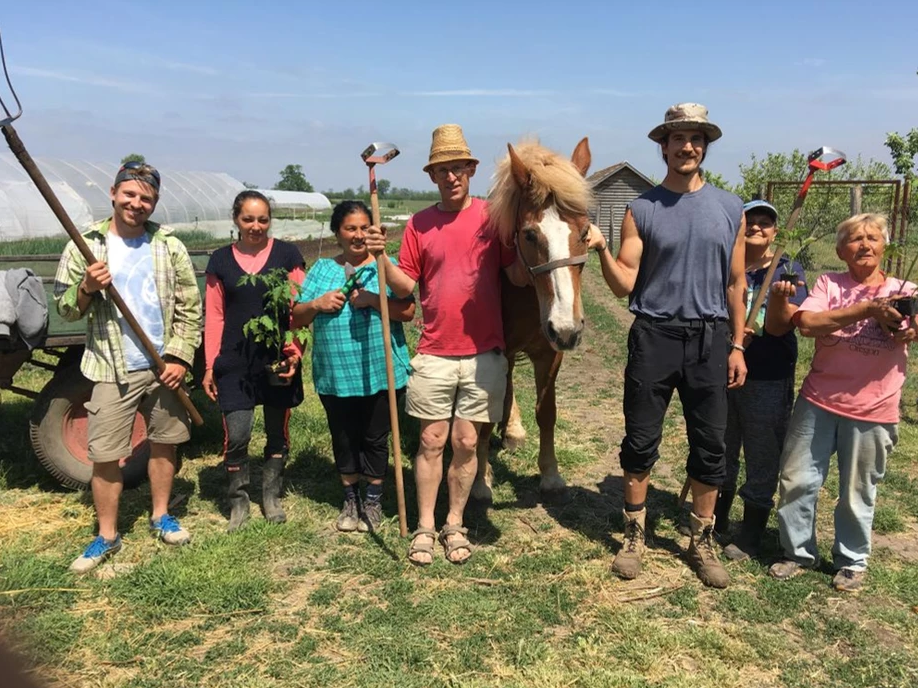
Enthusiastic young people
The last two years we have been heavily invested in bringing on young trainees.
We made a commitment a couple of years ago to start investing in young people, with the aim to create a two-year rolling programme, to not only teach the basics of organic bio-intensive vegetable production, but also to provide a background in the management skills needed to run an enterprise.
We are now into our third year with this management training programme, with Emese our third trainee, who started in the autumn of 2021. Csaba has already come and gone, and Levente who started this time last year, has opted to stay on for a second season to consolidate his knowledge and skills. For 2022 Emese will lead the propagation work in the garden.
For us the really concrete benefit we get from this investing in people is that we have some continuity to work with, as well as enthusiastic young people committed to learning a range of the skills needed to make a small farm work.
The cost, is that for a small enterprise we have to commit ourselves heavily financially to providing work and wages throughout the whole year.
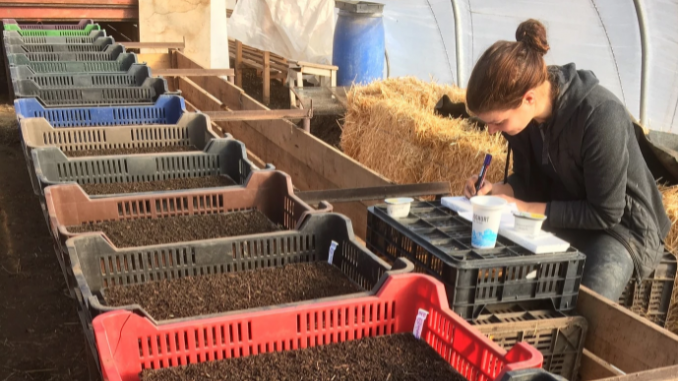
Thinking about food systems
A big learning experience for us in 2021 was having two schools groups who each spent a whole week with us in the garden. Both classes were from local Rudolf Steiner/Waldorf schools, where practical farmwork is part of the curriculum in class 9 or 10.
Putting the farm over to 20 or 25 students for a week is quite a challenge, especially as we wanted to ensure that everyone was always doing something useful and educational. We were fortunate to have teachers with the students who really valued the farm experience.
I was impressed with how well-behaved the group of adolescents were, with surprisingly little drama occuring during either week, and we also saw a lot of jobs completed on the farm which we may not have gotten around to.
However, these kind of programmes do take a large amount of effort and invested energy, and takes us beyond the usual routine.
The fact that we would consider having more school groups this year, must indicate that we found the school visits worthwhile. Certainly, we, the garden team, consider it an investment in the future, to have young people spend a week working on the farm.
We are not so naive as to imagine many young people are going to take up this kind of life as a career path, but if we can provide an experience where for a week young people are closer to the source of their own food and thinking about food systems and how they impinge on their lives, then the effort seems worth it.
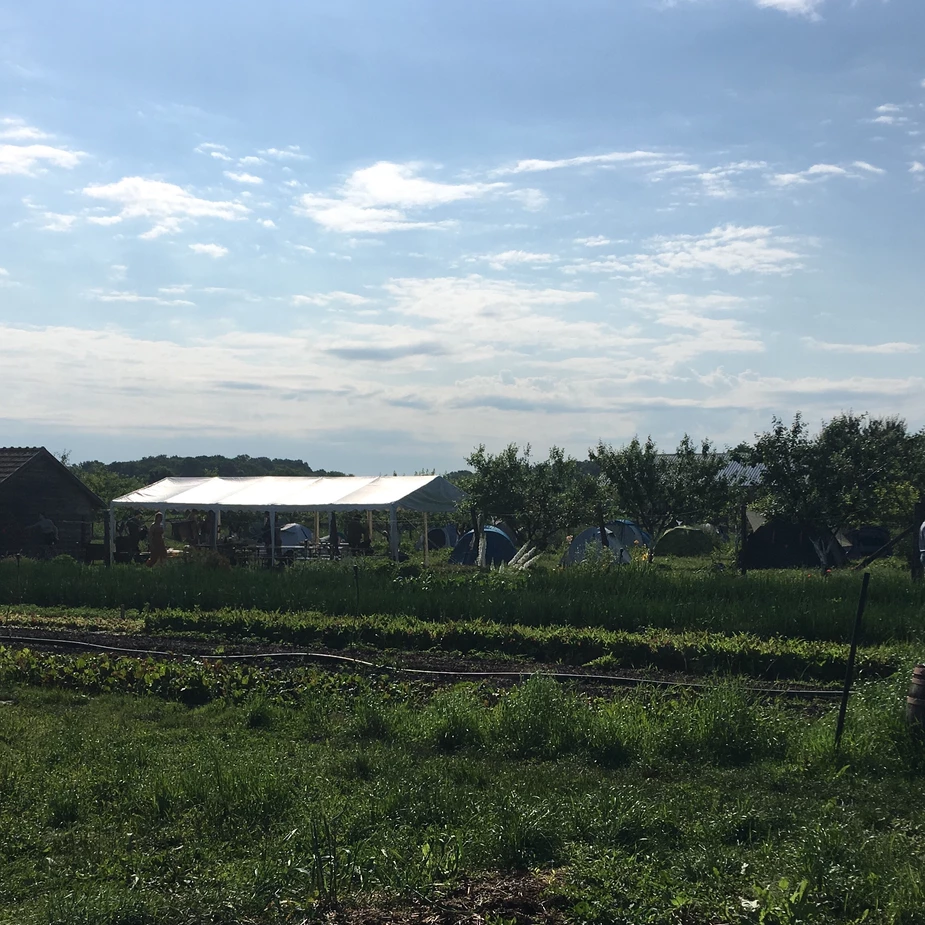
Future of farming
And for this year? We haven’t yet set our goals for the season. We aim each year to set 3 or 4 concrete goals.
For me, my head is filled with questions about the future of microfarms in the current food system. All of the drivers seem to be pushing towards consolidation of farm holdings and also retail outlets.
Is there a future for micro-scale production? Only if there are consumers still willing to go out of their way to visit local markets and order seasonal boxes of vegetables. This seems to be an increasingly big ask, when the major food retailers are clearly identifying organic sales as a way to attract people into their shops.
The bigger questions ahead of us though are not just economic.
How is artificial intelligence going to transform farm work?
How do we maintain and strengthen a local food movement, which is effectively a grassroots upwards civil movement, in an era when community activity seems to have been lost from the normal range of social life?
Covid has taken a huge toll – in my view not primarily in lives lost (though these of course are huge losses), but in the erosion of motivation for community activity.
Are our lives more than transactional steps to fulfil our most primary needs? Or do we belong to larger communities, with values which have to be worked at to be maintained?
